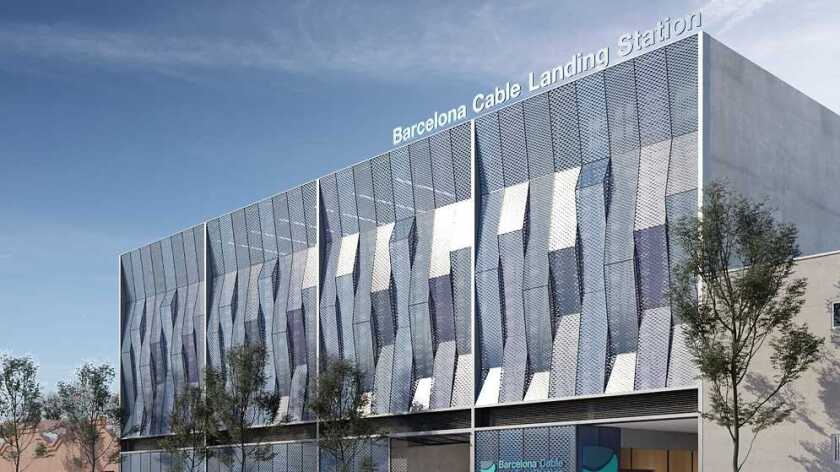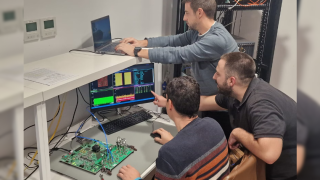It will be the point of entry for high-capacity fiber-optic subsea cables arriving from Asia, Africa and the Mediterranean, providing the fastest connection between Europe and America.
Barcelona Cable Landing Station will be an open digital port that will allow unrestricted cable entry. The aim of AFR-IX is to be a benchmark in the sector in the Mediterranean, where there is an urgent need for new digital ports to improve global connectivity: " Currently, Marseille receives most of submarine fibre-optic cables of the Mediterranean, where there is a clear saturation. The need for other landing station such as Barcelona CLS is clear, which will also be an alternative to Genoa" points out Norman Albi, CEO of Barcelona Cable Landing Station.
At the moment, AFR-IX Telecom is able to install in Barcelona CLS up to eight submarine fiber-optic cables, running along the seabed from the Barcelona area to the cities of Marseilles and Genoa.
The landing station, already under construction, will come into operation the first quarter of 2022 with the arrival of the first submarine fiber optic cables, and the final data transmission capacity of Barcelona CLS, when the eight 16-fiber-pair cables are connected up, will be 400 Tbps.

Barcelona Cable Landing Station is the first landing station built by the company in Spanish territory and AFR-IX Telecom highlights the privileged location of the infrastructure, located in the metropolitan area of Barcelona (Sant Adrià de Besòs), with a point of entry clear of physical barriers and a suitable coastline: “It will provide a fast route for the connection with the United States, through the submarine cable that runs between Bilbao and North America, and will also provide an efficient route with South America, thanks to the connection of Barcelona CLS with Portugal and the Ellalink cable in Brazil, which crosses Latin America diagonally ”, explains Albi.
AFR-IX Telecom, a company founded in Barcelona in 2013, is a licensed telecommunications operator that offers Internet and data services to companies in Africa and has extensive experience in the sector. Worthy of mention in this regard is the company's participation in projects like Canalink, Islalik - Balalink, Ellalink, ACE, CEIBA-2, Overseas and Mandji, touching different phases in the complex process of submarine cable installation: from design, construction, network management, operation and maintenance of submarine cables as well as landing stations.
Soon, it will be announced which will be the first cables to arrive at the Barcelona Cable Landing Station. Their commissioning will strengthen the network of submarine fiber-optic cables that connect the continents, more than 400 submarine cables that are currently estimated to account for 90% of Internet traffic.
Visit www.barcelonacls.com to know more about the project.





